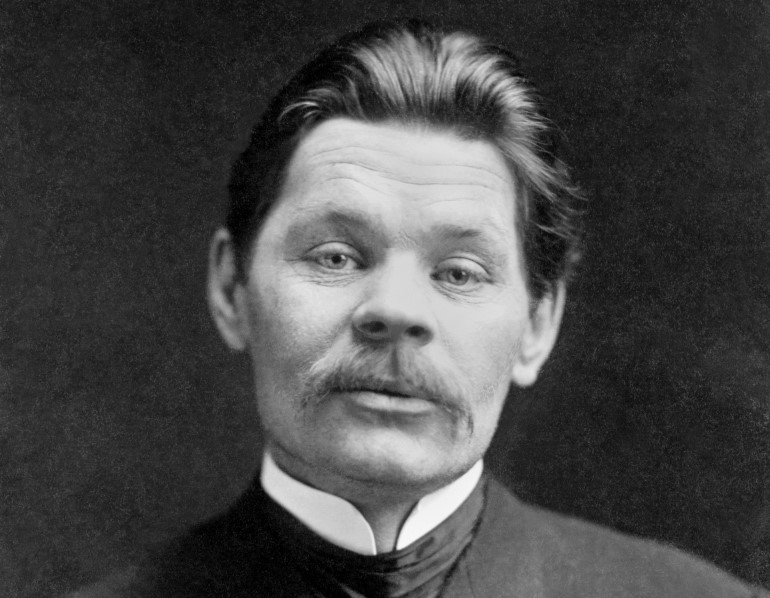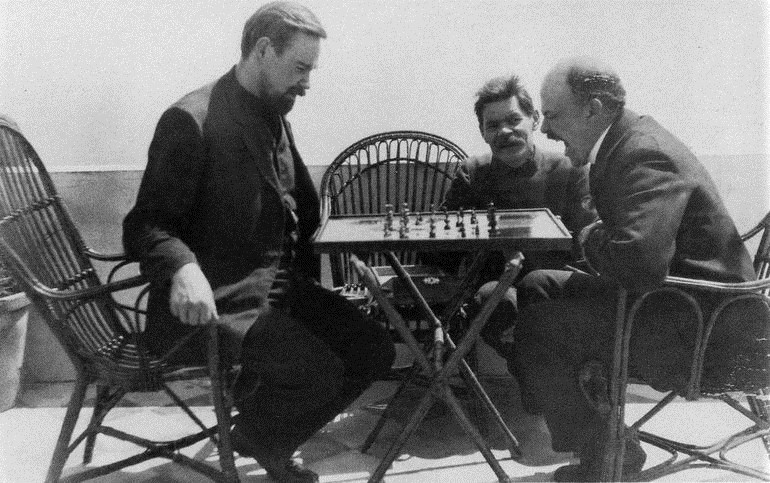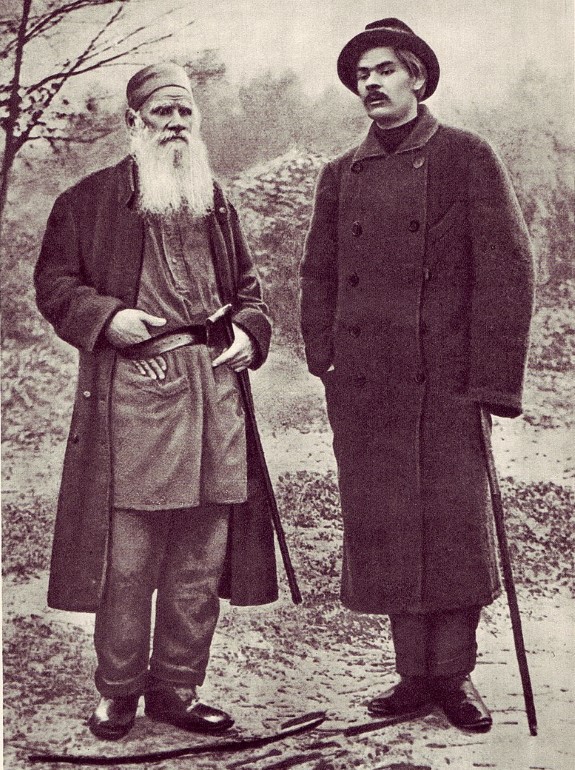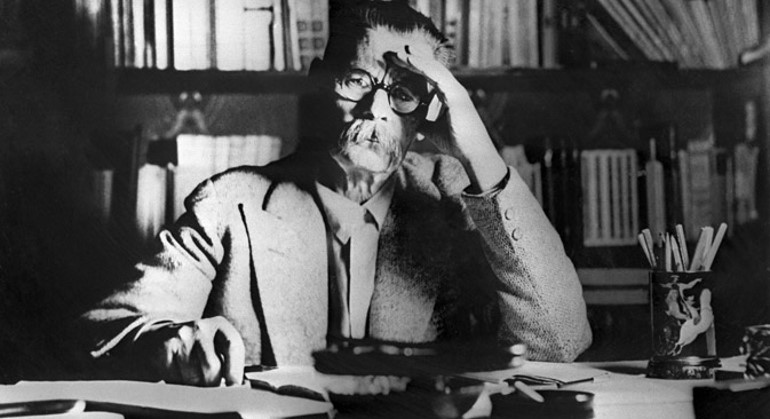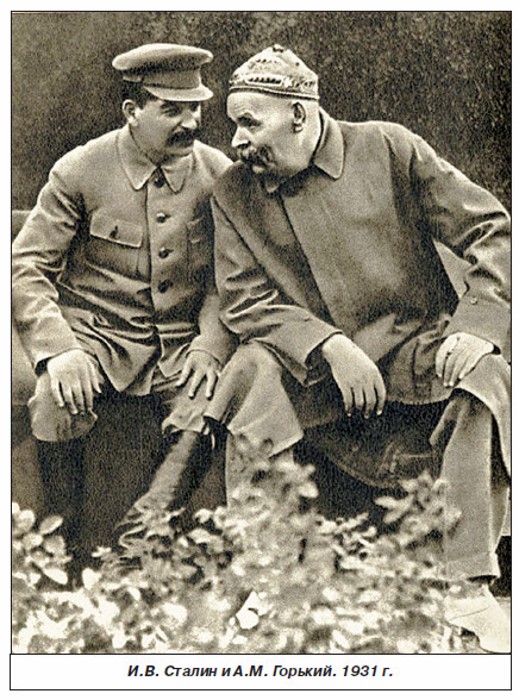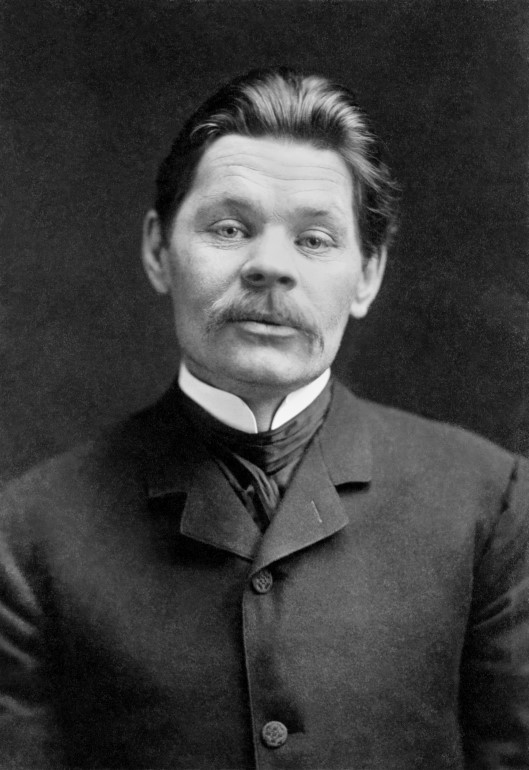Svetlana Smetanina
150th birth anniversary of the great Russian writer Maxim Gorky is celebrated in Russia and all over the world. How well do we know his works today, they are still actual? Why his heritage still engages people around the world? Professor, Head of the Department of A.M. Gorky Institute of World Literature of the Russian Academy of Sciences Lidia Spiridonova elaborates further on these topics.
– Gorky was the leading classic writer of our country during Soviet times. He was called “the wrong classic” and went to oblivion during Perestroika. What is going on now? Does Gorky come back?
– Not only Gorky returns, he's never been away. What the wider public knows about Gorky? He was the stormy petrel of revolution, a convinced Marxist, first proletarian writer (as Lunacharsky defined) and the founder of Socialist realism. All this Soviet propaganda cliches have firmly stuck to him. But once we start actually reading and thinking on his pieces, we see that all these statements are not connected to reality. Gorky's quotes don't confirm these prevalent conceptions as well.
These are not just cliches. Soviet authorities made this “gift” to Gorky tying him to the USSR and showing the world that he's become a real Marxist after returning to his birthland. Instead, it's much more complicated.
During the go-go '90s Gorky's authority was debunked. It happened mostly in Russia, while abroad his books continued being published and translated anew.
Lenin plays chess with A. Bogdanov at M. Gorky's house. 1908, Capri (Italy). Picture: hystory.mediasole.ru
Because of these cliche, during the go-go '90s Gorky's authority was debunked. It happened mostly in Russia, while abroad his books continued being published and translated anew.
The Confession novel was translated with very interesting preface in France. There are some very interesting researches on Gorky that were published in America. I.e. all around the world Gorky kept being important for those who understood his complexity and a great talent. Gorky's plays were produced worldwide, and even more staged recently.
To deny those statements we didn't engage in an open polemic with tabloids because of their level. Instead, we have been publishing Gorky who is practically unknown beginning from 1997. The volume with letters is the second part of his complete works collection. In his uncensored letters Gorky-the human, Gorky-the artist, the person and the thinker was always writing about personal stuff and public issues as well. We can see the other Gorky here.
20 volumes of letters dated up to 1930 have already been published. They disprove all speculations that Gorky is “the first proletarian writer” and “the Bolshevik”. The aforementioned cliche hinder the really important role of Gorky as the writer of the global significance up to now who is very important to the world.
– Gorky became famous pretty early. What it meant at the time – to be famous and trendy writer?
– It is true that he was “the stormy petrel of revolution.” The Song of the Stormy Petrel was the Russian revolution harbinger, while oppositional moods affected entire country. His first opuses issued in 1898 have quickly received accolades from foreign critics. Gorky was called “the pessimist and the aristocrat”, and nobody called him marxist – he's never been the one.
Ilya Repin has painted his portrait in 1899. In a year this portrait was presented at the exhibition, and all spoiled St. Petersburg audience went to see who is this man, Maxim Gorky.
He was translated into 40 languages! And we're talking about the early Gorky. It means that he's became popular worldwide in the end of 19th century. In the beginning of the 20th century he was not just recognized but internationally heard worldwide.
– We're talking about the beginning of the Silver Age. What did famous literary workers thought about him? Has Gorky become the part of the city bohemian life?
– The literary establishment was very interested to know more about him. He was invited to literary salons by Zinaida Gippius and Dmitry Merezhkovsky (recognized Russian writers of the beginning of 20th century – ed.). Gorky adored the following line from one of Gippius' poems: “I want that which does not exist.” He was definitely a romanticist in his early works.
Maxim Gorky visits Leo Tolstoy in Yasnaya Polyana, 1900 г. Picture: ru.wikipedia.org
High Society of St. Petersburg has invited and appreciated him. But Nicolas II hated him: when Gorky was nominated to become the Academy of Literary Sciences member, the Tsar has crossed out that proposal and wrote that it wouldn't work. It happened despite the fact that the writer has saved lives of many Reds and Whites during the Civil War, including the fact that one of the Great Princes hided at his house.
Gorky once said that he used to have access to all floors of the social ladder, from lowlifes to Grand Dukes and Soviet State leadership.
– Gorky wasn't educated properly. Nevertheless he was recognized as a highly educated person. How come?
– He studied for two years at Kanavino college (Nizhnij Novgorod – ed.). And afterwords, as they say nowadays, he was a self-made man. He loved reading; his grandfather taught him grammar using the Liturgical Dictionary in the early childhood. Gorky had an exceptional memory. His grandmother used to tell him Christian legends, so Russian Orthodox books he knew from his childhood. And then he read a lot, he strove for knowledge and learned about the world philosophy very early, which is amazing.
There was a populist named Orlov who translated Giacomo Leopardi, the poet of the “world's grief”. So, Gorky learned from Orlov the philosophy of pessimism, while philosophy of Nietzsche and Schopenhauer he learned from student Vasiliev who tried to prepare him for the university. Gorky wrote a story On Philosophy Harm where he recalls how he strove to understand philosophy basics being a teenager – such a thirst for this science he had.
M. Gorky at work. Picture: rbth.com
His outstanding productivity and phenomenal memory allowed to be among the world's most educated people. He repeatedly corresponded with renown writers, public figures, politics from all over the world. He communicated equitably with them. Can you imagine that he corresponded for almost 20 years with refined European thinker Romain Rolland? Of course Rolland would not keep in contact with self-taught amateur writer for such a long time if he wasn't interested.
His outstanding productivity and phenomenal memory allowed to be among the world's most educated people. He repeatedly corresponded with renown writers, public figures, politics from all over the world. He communicated equitably with them.
The published correspondence shows Gorky in completely new light. Simultaneously, we have published some documents that were prohibited during Soviet times. As for now there are 13 compilations called Files. Studies, that include letters between Gorky and Stalin, Lenin, Yagoda, Molotov, Bukharin, etc.
– Maxim Gorky was in emigration for pretty long time. Could he stay there forever? Would he find himself?
He didn't feel comfortable already and thought about returning to his motherland. Gorky had never contacted with white émigr? community, practically lived with Soviet passport. Besides, fascism has triumphed practically in 1922. The white emigration turned against Gorky in 1926: after Dzerzhinsky (Soviet Bolshevik revolutionary and a Soviet statesman ed.) died Gorky wrote in a private letter that he is very sorry. The writer described Soviet statesman as a good person. Gorky knew him for a long time, Dzerzhinsky even came to visit him in Capri. This letter became the reason of Gorky's stigmatization.
USSR started to actively invite Gorky in 1927. He has understood that Stalin lures him, and that all his old “sins” to be forgiven.
J. Stalin and M. Gorky. Picture: noev-kovcheg.ru
We were talking about the complete works of Gorky – in total it makes more than 80 volumes, more than of Tolstoy. They're still not published: it was impossible to publish non-fiction and about a third part of Gorky's letters during Soviet times. And now nobody publishes his articles because they stand for Soviet power and socialism. We talk about Gorky not knowing who he was.
– Is Gorky interesting as a thinker? How modern are his views?
– His literature has to be read with attention. Instead of erasing Gorky from a school program as they do now, he has to be promoted staring from kindergarten. His story The Little Sparrow will let a child know that mom would always defend him. The Flaming Heart of Danko and The Old Woman Izergil would go well for an elementary school. The idea is that your talent has to bring profit not solely to you but to others as well.
Those young people who would like to have their own business can read The Artamonov Business. Gorky advocated labour all his life. If you have a business that you nurture all life it will bring profit. If it's just an inherited thing than you won't enjoy your job, like oldest Artamonov. This book reflects the thoughts on what is the real calling.
Maxim Gorky, 1906. Picture: wikimedia.org
And finally, everybody should read The Life of Klim Samgin. Because today we don't have any national idea. We used to have socialism on our minds, but now what? Enrichment? It would not replace national idea. Gorky wrote about an empty soul – how it is born, how then it turns into an empty piece of history. Emptiness is the prevailing image, very interesting image.
Gorky is a great son of Russia. Pasternak called him “an oceanic man” explaining that “he is big with his heart and his real patriotism.” What except patriotism can unite people today?
– Starting from March 27 A.M. Gorky Institute of World Literature of the Russian Academy of Sciences with support of Russkiy Mir Foundation is organizing the International Scientific Conference World Significance of M. Gorky. Can you say few words about this event?
– Our conference has surprised us: after announcing it we received applications from 14 countries. The program comprises about 100 speakers, more than 20 came from the US, Europe, China.

